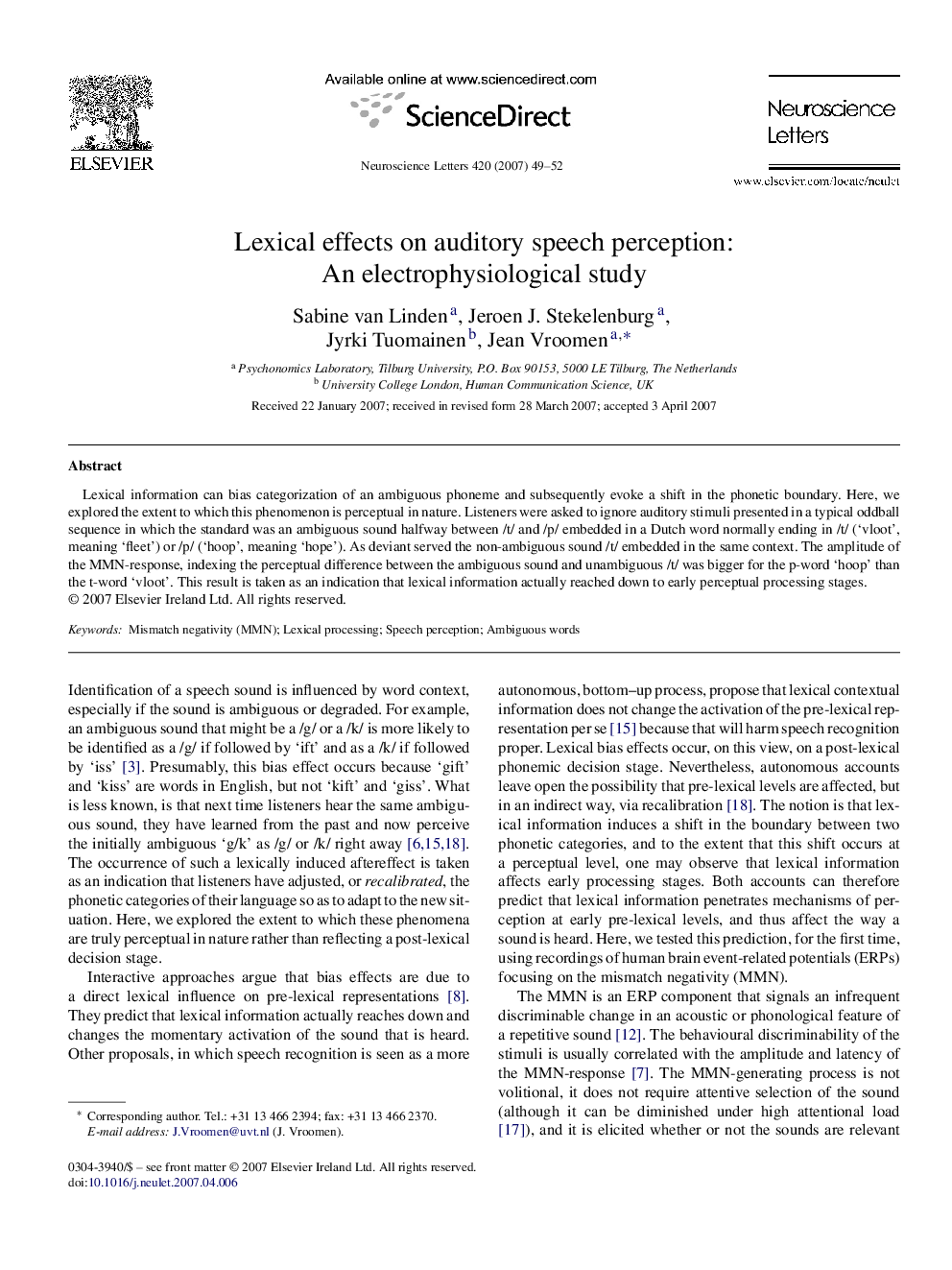| Article ID | Journal | Published Year | Pages | File Type |
|---|---|---|---|---|
| 4349504 | Neuroscience Letters | 2007 | 4 Pages |
Lexical information can bias categorization of an ambiguous phoneme and subsequently evoke a shift in the phonetic boundary. Here, we explored the extent to which this phenomenon is perceptual in nature. Listeners were asked to ignore auditory stimuli presented in a typical oddball sequence in which the standard was an ambiguous sound halfway between /t/ and /p/ embedded in a Dutch word normally ending in /t/ (‘vloot’, meaning ‘fleet’) or /p/ (‘hoop’, meaning ‘hope’). As deviant served the non-ambiguous sound /t/ embedded in the same context. The amplitude of the MMN-response, indexing the perceptual difference between the ambiguous sound and unambiguous /t/ was bigger for the p-word ‘hoop’ than the t-word ‘vloot’. This result is taken as an indication that lexical information actually reached down to early perceptual processing stages.
